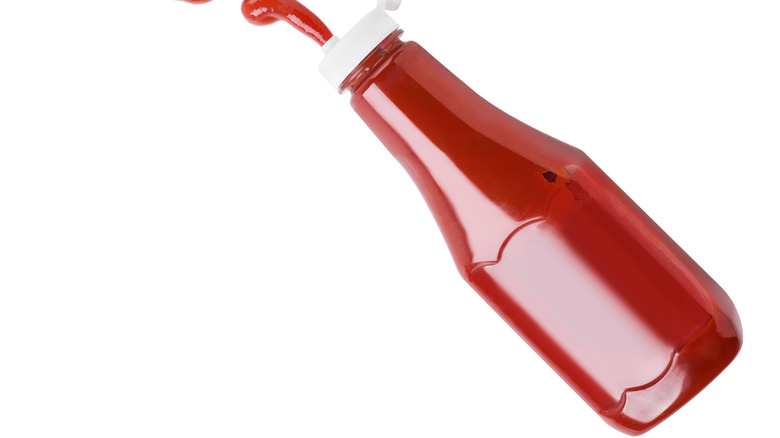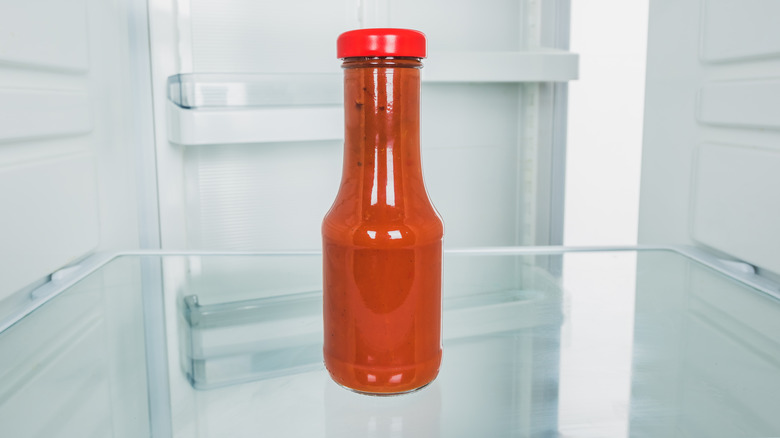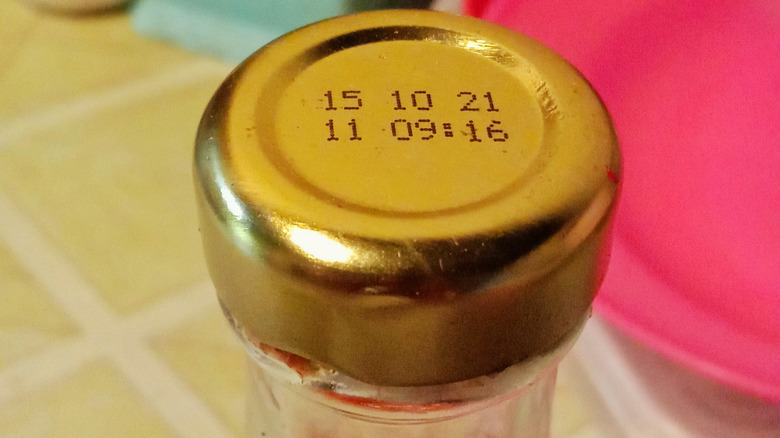Can Ketchup Go Bad?
You probably check the expiration dates on many items, if not all of them, when shopping for food, but those dates aren't always the best way to determine if the products you're buying are close to the end of their shelf life. According to Nourish by WebMD, approximately 90% of people don't understand how to read expiration dates so they don't know what they actually mean when it comes to food, medication, and other products. This is important information, not just for the freshness of the food, but also for your health when consuming it.
You have more than likely noticed various phrases with dates next to them. These can include "sell-by," "best if used by," "expiration," and "quality assurance" — and they all mean something different. They will also be placed on different products. According to Healthy Children, quality assurance dates are really just a suggestion of how long the manufacturer thinks the food will be good, but it's not an exact science. These include items like cereal, peanut butter, and ketchup, and they have dates on them that are often years into the future. So, can they go bad?
Understanding expiration dates
According to the United States Department of Agriculture (USDA), all foods can go bad, including ketchup. While ketchup isn't refrigerated in the store, it should be after opening, per Reader's Digest, and refrigerated ketchup should be eaten within six months of opening it. After that, you risk your ketchup tasting bad. Insider says that you should check opened bottles in your fridge frequently to ensure they are still good. Also, keep in mind that homemade ketchup won't last as long as store-bought products. According to Does It Go Bad, homemade ketchup only lasts about a week in the fridge.
A "use-by" date is the last date recommended for using the product while it's at its best quality, per the USDA. They are often found on things that have surprisingly long shelf lives, like dry goods, canned goods, spices, and condiments, including ketchup. While they are best used by the date on the label, this doesn't mean they are bad to eat or drink after that date. According to Good RX, if these products are stored properly — like putting opened bottles of ketchup in the fridge — they can still be safe to consume after the use-by date has come and gone.
More expiration dates to think about
Now that you know that ketchup can go bad and that you should put it in the fridge after it has been opened, what about all of those other expiration dates? According to the USDA, a "sell-by" date tells the store how long the product can be available for sale, but it does not indicate the safety of the product up to or beyond that date. These are usually attached to items like milk, eggs, and lunch meat. WebMD notes that these items can be safely consumed up to one week after their sell-by date, but Egg Safety says that eggs can be eaten up to five weeks after their sell-by date if they have been properly refrigerated. Eggs can last even longer in the freezer.
Finally, expiration dates are hard deadlines used on foods like baby formula, baking mixes, and jellies, and they are often seen on vitamins and medications. These dates tell consumers these products are not safe, not as effective, or they won't taste right after that date.


